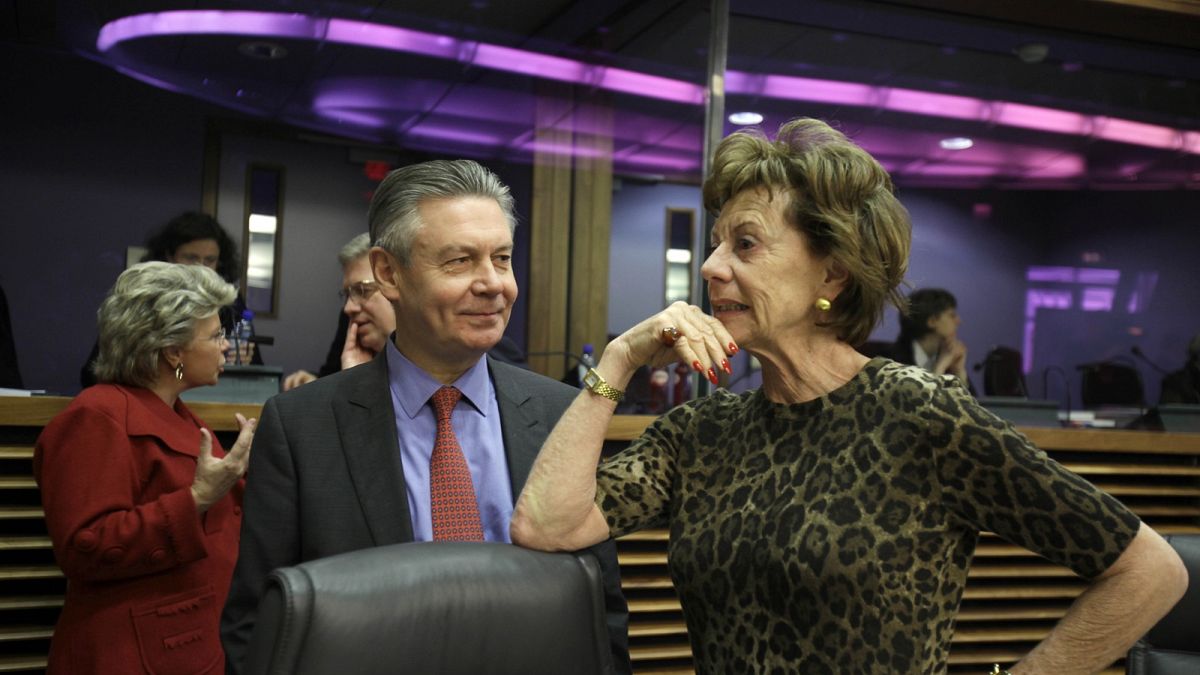The period restricts former commissioners from taking jobs that entail lobbying its former employer.
Brussels is once again battling questions of professional disloyalty and excessive cosiness with the private sector after the shocking revelations of the Uber Files.
The massive leak of internal documents and emails shows that Neelie Kroes, a former European Commissioner in charge of the digital agenda, lobbied in favour of Uber, the ride-hailing service.
Kroes denies any wrongdoing.
The accusations centre on the activities that Kroes carried out during the so-called "cooling-off" period.
This interval restricts former EU commissioners from engaging in professional activities, paid or unpaid, that entail "lobbying or advocacy vis-à-vis" the Commission and its multiple services.
The period begins right after officials leave office and lasted for 18 months at the time Kroes worked in Brussels. It was later extended to two years.
According to the Uber Files, during her cooling-off period, Kroes tried to lobby the Dutch government of Prime Minister Mark Rutte to have the police "back off" from an investigation into Uber's Amsterdam office.
In May 2016, when the period was near expiration, Kroes told an Uber executive that she was trying to arrange a meeting between the company and an unnamed EU Commissioner.
The leaks also show she helped Uber meet with Rutte himself.
"Our relationship with NK [Neelie Kroes] is highly confidential," wrote Mark MacGann, Uber's chief lobbyist in Europe at the time, in an email to his colleagues. "Her name should never figure on a document."
Civil society organisations condemned the close relationship between the EU official and the company but noted this episode was far from being the first case of revolving doors in Brussels.
Watch the video above to know more about the European Commission's cooling-off period.
